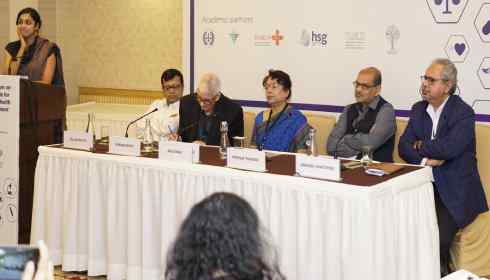
Health experts: Bridge gaps in policy, evidence and practice
BS RAWAT
NEW DELHI: India’s health policy needs to promote partnerships between those who generate evidence, those who disseminate it, those who frame policies and those who implement them, say health care experts.
Every policy decision, they say, should have an evidence footprint.
"Currently, the Medical Council of India does not recognize systematic reviews as a form of original research and this needs to change if we need to improve the quality of evidence for policy-making," said Prof Prathap Tharyan, Director, Evidence-informed Health Care and Health Policy, the Christian Medical College, Vellore.
Prof Tharyan was speaking at the first-ever National Symposium on Evidence Synthesis (NSES) organized by The George Institute for Global Health and the Campbell Collaboration in New Delhi.
"We still need young people to champion the evidence revolution,” he suggested.
Dr Anju Sinha, Deputy Director General, Indian Council of Medical Research, said, “Evidence synthesis is critical in influencing policy and practice that can move us closer towards universal health coverage and sustainable development goals.”
Prof Anindya Chatterjee from the International Development Research Centre, said that understanding the use and impact of science requires an understanding of the social factors involved in the process of knowledge production and its use.
Dr Pallab Maulik, Head of Research at the George Institute for Global Health, stated that the symposium will provide an opportunity to all participants to learn about evidence synthesis across different disciplines of medicine, public health, and social development so that we are able to take an evidence-based approach to accelerate the achievement of Sustainable Development Goals.